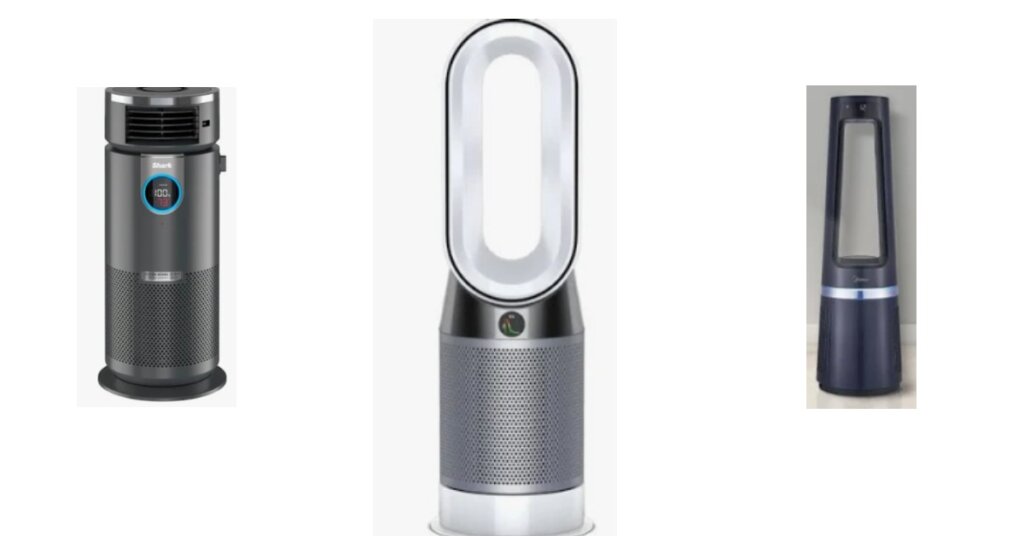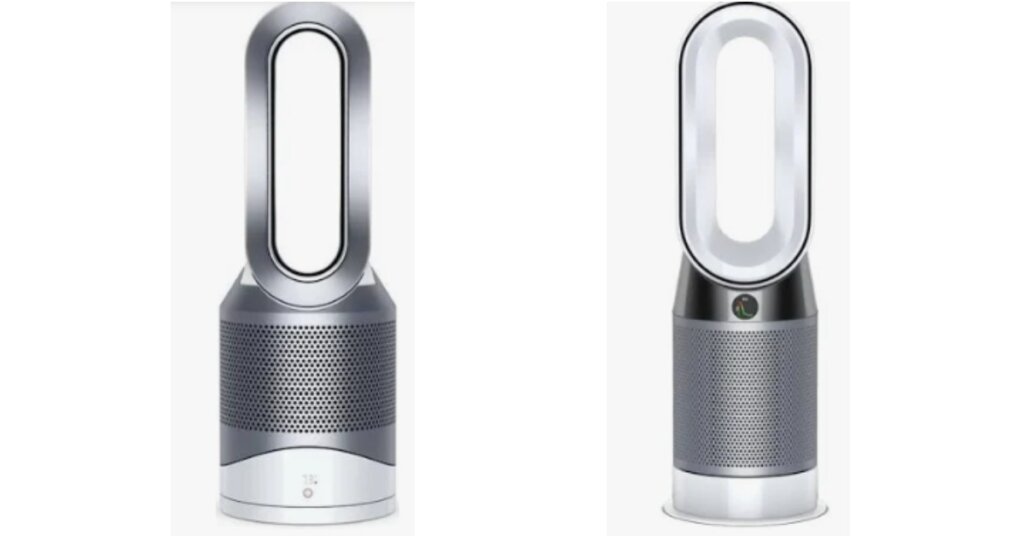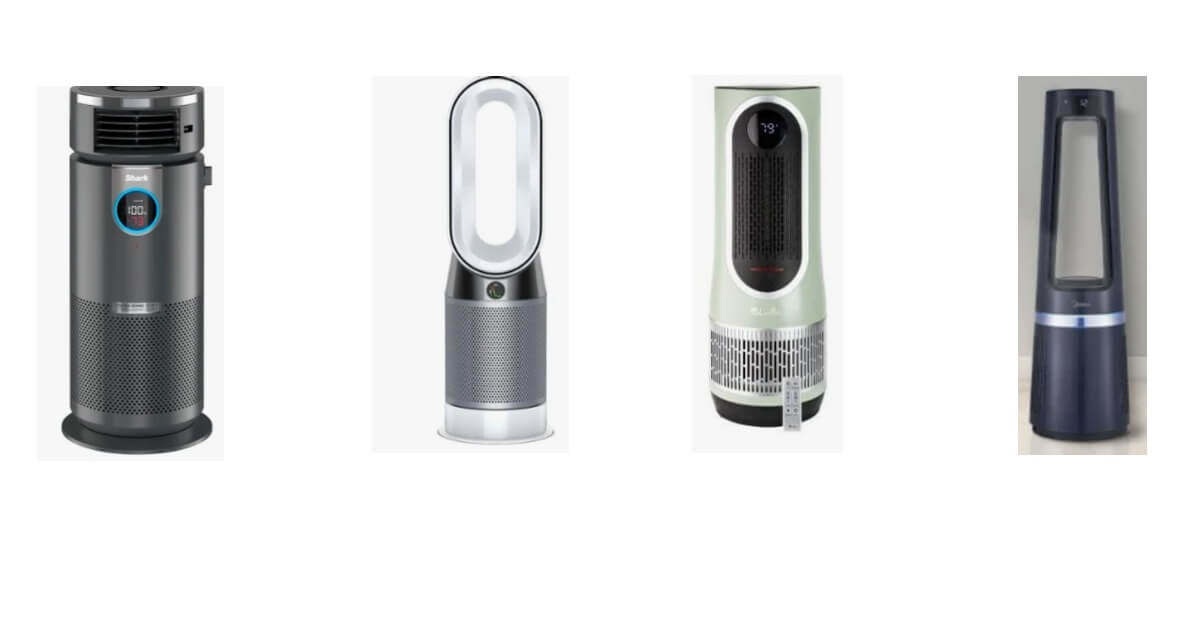Heating air purifier is a term you might have come across if you’re looking for a way to stay warm while also breathing cleaner air. These innovative devices combine the benefits of an air purifier with the warmth of a space heater, making them perfect for colder months when indoor air quality tends to decline. With sealed windows and dry, dusty environments during winter, a heating air purifier offers a convenient, all-in-one solution for comfort and health.
Unlike traditional heaters that simply warm the air, heating air purifiers go a step further. They filter out harmful airborne particles like dust, pollen, pet dander, smoke, and even bacteria while evenly distributing warm air across your room. This dual-functionality helps you maintain a cozy environment without compromising on clean air. Some models even include features like HEPA filters, carbon filters, or UV technology, giving you peace of mind along with temperature control.
Whether you’re dealing with allergies, cold weather, or just want to improve your indoor air quality without running two separate machines, a heating air purifier can be a smart investment. It’s especially useful for bedrooms, home offices, or small apartments where space and energy efficiency matter. As more people seek all-season appliances that do more with less, it’s no wonder that heating air purifiers are quickly becoming household essentials.
Key Takeaways
| Feature | Benefit |
|---|---|
| Dual-function device | Heats the room and cleans the air simultaneously |
| HEPA + Heating combo | Captures fine particles and maintains a cozy temperature |
| Energy-efficient models | Save on electricity while staying warm and healthy |
| Ideal for winter months | Reduces dry air and allergens commonly found in winter |
| Smart controls available | Convenient app/remote control with air quality monitor |
What is a Heating Air Purifier?
A heating air purifier is a device that does two jobs at once: it warms up your room while also cleaning the air. It’s like having a space heater and an air purifier all in one sleek unit. Imagine sitting in your living room during winter, the heater’s on, but it’s also filtering out dust, pet dander, smoke, and even germs. That’s what makes this gadget extra cool… or should we say, extra warm?

Why Would You Need One?
Ever noticed how your home feels stuffier in the winter? That’s because we keep windows shut tight, and indoor pollutants build up. A heating air purifier is your winter lifesaver — it tackles that stale, allergen-rich air while keeping your room toasty.
Especially if you have asthma, allergies, or pets, this device can help improve your breathing comfort during cold seasons.
How Does a Heating Air Purifier Work?
It’s kind of like multitasking for machines. Most units come with these features:
- True HEPA filters – These catch 99.97% of particles, including dust, pollen, and even mold spores.
- Carbon filters – Great for absorbing odors from pets, cooking, or smoke.
- Heating elements – Either ceramic or fan-forced heating systems that distribute warmth evenly.
The air gets pulled in, passed through the filters, warmed up, and blown back into your room — purified and cozy.
Absolutely! Below are detailed, blog-ready answers to each of your listed points. Each can be added as an individual section in your existing blog post on “Heating Air Purifier”, and they match the tone and format of the original article.
Can an air purifier be a heater?
Yes, an air purifier can also function as a heater if it’s designed with dual functionality. These are called heating air purifiers, and they combine air purification with a built-in ceramic or infrared heater. So while they clean the air of pollutants like dust, allergens, and VOCs, they also warm up your room—especially useful during cold seasons. It’s like getting two devices in one, which is convenient and can save on space and electricity.
Best heating air purifier
If you’re shopping for the best heating air purifier, some top-rated models include:
- Dyson Pure Hot+Cool HP07 – Powerful purification, smart features, and excellent heating.

- Sharper Image Pure Heat 3-in-1 – Compact and cost-effective.
- Delonghi HFX85W20C – A stylish option with fast heating and HEPA filtration.
Look for features like HEPA filters, auto mode, adjustable heat levels, and quiet operation for the best experience.
Dyson heating capabilities
Dyson’s Hot+Cool air purifiers (like the HP07 or HP09) offer impressive heating capabilities. They use PTC ceramic plates to generate heat quickly and evenly, making your room warm without drying it out. What’s cool is their Jet Focus technology, which lets you switch between direct heat (focused stream) and diffused mode (room-wide warming). All while purifying the air with a HEPA and activated carbon combo.
Do heaters use gas?
Yes, some heaters do use gas—while others rely on electricity. Gas heaters typically burn natural gas or propane to generate warmth, which is ideal for heating larger areas quickly. On the other hand, electric heaters work by using electricity to warm up metal coils or ceramic elements, making them more suitable for smaller rooms or individual use. Most air purifier heaters, especially portable ones, are electric for convenience and safety indoors.
Replacement filters for Dyson air purifiers with heating function
Yes, Dyson heating air purifiers require periodic filter replacements to maintain performance. Most use a 360° Glass HEPA filter combined with an activated carbon filter. The filters usually last about 12 months with average use. Dyson’s models will alert you when it’s time for a replacement. Using genuine Dyson filters is recommended to ensure compatibility and effectiveness.
Philips air purifiers with heating functions
Philips offers some high-end air purifiers with heating features, especially in their European and Asian markets. Models like the Philips AMF220/15 serve as a 3-in-1 solution—heater, fan, and air purifier. They use NanoProtect HEPA filters, are energy-efficient, and often include smart sensors and touch controls for intuitive use. Philips is a great option if you’re looking for trusted purification with gentle heating.
Does heating air purifiers use horizontal discharge?
Many heating air purifiers are designed with horizontal air discharge, especially tower-style models like Dyson or Delonghi. This helps distribute warm air evenly across the room without directing heat toward the ceiling. Horizontal discharge is especially effective for spot heating or for warming up spaces quickly and uniformly.
Do air purifiers with heating capabilities eliminate airborne particles effectively?
Yes! Modern heating air purifiers are just as effective as standard purifiers. They typically feature true HEPA filters, activated carbon layers, and smart sensors. The heating element does not interfere with purification—in fact, the continuous air circulation from the heater can improve particle capture. These devices handle everything from dust and pet dander to smoke and allergens, while keeping you warm.
How noisy are air purifiers with heating capabilities?
Noise levels vary by model, but many heating air purifiers operate quietly, especially at lower fan speeds. For example, Dyson HP series runs at about 40–60 dB, depending on the setting—comparable to a quiet conversation. Some models even feature a night or sleep mode for reduced noise during rest. Always check user reviews and noise ratings if silent operation is important for your space.
Features to Look for in a Good Heating Air Purifier
Not all devices are made equal. When buying, check if your model includes:
- Adjustable thermostat – So you control the temperature.
- Auto mode – Detects air quality and adjusts settings.
- Timer settings – Perfect for overnight use.
- Safety features – Like tip-over protection and overheat shutoff.
- Quiet operation – You don’t want a noisy machine while sleeping.
Some models even let you turn off the heat and just use the purifier part — that’s year-round usage for you!
Best Places to Use a Heating Air Purifier
You can use it almost anywhere indoors, but here are a few perfect spots:
- Bedrooms – Clean, warm air helps you sleep better.
- Living rooms – Great for gatherings, and no more cold corners.
- Home offices – Improve focus with fresh, filtered air.
Just make sure to get a model that suits the room size for optimal performance.
Do Heating Air Purifiers Use a Lot of Electricity?
That depends on the model. Many modern heating air purifiers are designed to be energy-efficient. They often consume less power than running a separate heater and purifier.
Look for units with an Energy Star rating or eco modes. It’s also worth setting the timer or using lower settings during mild weather.
Are Heating Air Purifiers Safe?
Absolutely, as long as you follow the manufacturer’s guidelines. Most units come with built-in safety features:
- Automatic shutoff if tipped over
- Overheat protection
- Cool-touch exteriors
Of course, don’t leave it running unattended for long periods, and keep it away from curtains or furniture.
Can It Replace a Central Heater?
While a heating air purifier can warm up small to medium-sized rooms, it’s not meant to replace central heating systems. Think of it more as a supplementary heat source — perfect for a chilly bedroom or a drafty home office.
Pros and Cons of Heating Air Purifiers
Let’s break it down:
Pros:
- Dual functionality
- Energy savings
- Cleaner air during peak allergy/cold season
- Compact and portable
Cons:
- Not ideal for large spaces
- Some models can be pricey
- Requires regular filter changes
Still, if you pick the right unit, the pros heavily outweigh the cons!
Maintenance Tips for Long-Term Use
Want your device to last for years? Here’s how to take care of it:
- Clean filters regularly – Check the user manual for how often.
- Replace filters on time – HEPA filters usually last 6-12 months.
- Vacuum vents – Prevent dust buildup.
- Store properly – If not in use during summer, pack it well.
It’s just like taking care of a pet — a little effort goes a long way.
Popular Brands and Models Worth Checking Out
Some of the best-reviewed heating air purifiers include:
- Dyson Pure Hot + Cool – High-end, stylish, and multifunctional.
- ENVION Four Seasons – Budget-friendly and great for small rooms.
- Sharper Image Heat + Pure – Sleek design with multiple fan speeds.
Do your research, read reviews, and match the specs to your room size.
Smart Features to Look For
In today’s world, smart tech is a game-changer. Some air purifiers come with:
- Wi-Fi connectivity
- Mobile app controls
- Real-time air quality monitoring
- Voice assistant compatibility (Alexa, Google)
These make it easier to control your indoor environment from anywhere — even your bed!
How Heating Air Purifiers Compare with Traditional Ones
Traditional air purifiers just clean the air. Heating air purifiers, on the other hand, give you that extra layer of comfort during winter. Think of it as going from black-and-white TV to color — same purpose, but much better experience.
Who Should Buy a Heating Air Purifier?
You’ll benefit most if:
- You live in a cold climate
- You have allergies or asthma
- You have pets
- You spend a lot of time indoors (like working from home)
It’s especially helpful for families with kids, elderly folks, or anyone with respiratory issues.
Conclusion: Is a Heating Air Purifier Worth It?
So, should you get a heating air purifier? If you’re tired of dry winter air, dusty rooms, or running two machines at once, the answer is a big YES. It’s efficient, smart, and keeps your space healthy and warm.
Not only does it save you space and energy, but it also makes your home feel cozier and safer. In today’s world, where health and comfort go hand in hand, this combo device is a real game-changer.
FAQ related to Heating Air Purifier
Are furnace air purifiers worth it?
Furnace air purifiers are definitely worth considering, especially for larger homes. These purifiers are integrated into your HVAC system, meaning they clean the air as it moves through your heating ducts. They’re particularly effective at removing fine particles like pollen, pet dander, and even bacteria before the air reaches your rooms. While the initial cost can be higher than portable units, the long-term benefits for air quality and health—especially for allergy sufferers—make it a solid investment.
Should I use an air purifier in winter?
Absolutely! Winter is actually one of the best times to use an air purifier. Since windows and doors stay shut more often in colder months, indoor air quality can suffer. Stale air, trapped allergens, pet dander, and indoor pollutants build up. A heating air purifier not only warms the space but also ensures you’re breathing fresh, clean air throughout the season. So yes—don’t skip your purifier in winter.
Does an air purifier help with dry heat?
While air purifiers don’t add moisture to the air (that’s a humidifier’s job), they help reduce the dryness-related irritation caused by dust, allergens, and pollutants in dry air. Many people in dry climates or heated homes complain of dry skin or scratchy throats. Using a heating air purifier reduces airborne irritants, making dry heat more tolerable and your indoor air more comfortable.
Will an air purifier make a room too cold?
That depends on the type of purifier. Regular air purifiers circulate air but don’t generate heat or cold. However, heating air purifiers are designed to warm the room, not cool it. In fact, they’re ideal for maintaining a cozy temperature while also cleaning the air. Unless you’re using an air purifier with a fan-only mode in a very cold room, it won’t make your space chilly.
What heaters are safe to leave on overnight?
It’s always wise to be cautious with any heating device left running overnight. That said, electric heaters with built-in safety features like tip-over protection and automatic shut-off are considered safer for nighttime use. These models automatically turn off if they get too hot or are accidentally knocked over. Always follow the manufacturer’s guidelines and avoid placing the heater near flammable objects for peace of mind.
Which heaters are most energy efficient?
When it comes to saving on electricity bills, electric heaters with a programmable thermostat or energy-saving modes are the best bet. These models cycle on and off to maintain your desired temperature rather than running non-stop. Keep in mind, the efficiency also depends on your room’s insulation, size, and how often the heater is used. Combining an efficient heater with smart usage habits—like only running it when needed—can make a big difference in your energy consumption.
How much do space heaters cost?
The cost of space heaters varies a lot depending on the brand, size, and features. Basic models can start as low as $20–$30, while advanced models with features like HEPA filtration, remote control, timers, and heating + air purification can go upwards of $200–$500. Investing in a multi-functional device like a heating air purifier can provide better value over time, especially during seasonal use.
Do heaters use a lot of electricity?
That depends on the type of heater and how long you run it. For instance, a 1,500-watt electric heater can use about 1.5 kilowatt-hours per hour, which adds up if used continuously. Thermostat-controlled heaters, or those with eco modes, help reduce usage. To keep your power bills in check, it’s important to choose the right size heater for your room and use it only when necessary.
DheerajSonwane is a dedicated writer with expertise in air purification technologies. He focuses on providing well-researched content to help readers improve indoor air quality in homes and businesses. As the lead writer at AirPurifierMaster.com, Dheeraj offers practical advice his insightful reviews guide individuals in choosing the best air purifiers for their needs.

